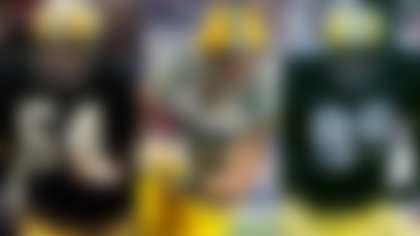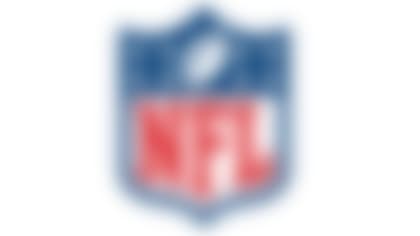By Bill Bradley, contributing editor
"Impetus" of the ball is what kept the New England Patriots from scoring a safety on a kickoff to the Indianapolis Colts on Sunday night, Dean Blandino said Friday.
Speaking during his weekly "Officiating Review" video for the media, the vice president for officiating explained the officials' process for declaring a touchback on the play, which was not eligible for replay review.
The confusion on the play started when Colts receiver Griff Whalen appeared to bat the ball from the 3 yard line into the end zone.
"An impetus -- and this is in Rule 3 in the rule book -- is the force that puts the ball in the end zone," Blandino said. "It doesn't matter whose end zone, but impetus is the force that puts the ball into that end zone. Normally, it's going to be attributed to the team that passed it or kicked it (or) that fumbled it.
"Here, New England is the kicking team. If the ball goes into the end zone as a result of the kick, then it's a touchback if it's downed by Indianapolis in the end zone."
What can the receiving team do that will change the "impetus?" Blandino said it could possess the ball and fumble it back into its own end zone, it could bat the ball back into the end zone or if the ball is at rest or nearly at rest after the kicking team muffs it in the end zone. In each example, the responsibility is on the kicking team to get the ball out of the end zone to avoid a safety.
Blandino said in this example the referees ruled that the ball was neither at rest nor not nearly at rest.
"It's very tight," he said. "It's a judgment call. ... When close, the direction is to put the ball in the end zone via the kick, because if we're wrong the safety is a very egregious result if we make an incorrect rule.
"This happens quickly on the field. It's not reviewable. ... They ruled that the kick still put the ball in the end zone and that's why the ruling was of a touchback was done in this situation."
Blandino also discussed a play during the Minnesota Vikings-Chicago Bears game in which a loose ball from Bears quarterback Jay Cutler was called an incomplete pass.
"You'll see the players stop," he said. "Players are stopping because the officials are ruling incomplete, they're blowing whistles.
"Even No. 24, who hesitated at first, jumps on the ball. It's a heads-up play, but everybody has stopped. The rule is, if the ruling on the field is an incomplete pass or down by contact but it's really a fumble, in order to give the ball to the recovering team that recovery has to happen in the immediate continuing action. So players can't stop as a result of the dead-ball rule as result of the whistle."



